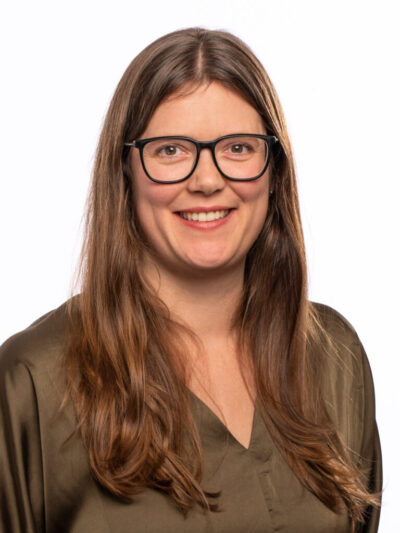Leslie Schoop tapped for leadership role at new NSF-funded AI institute
Professor of Chemistry Leslie Schoop will hold a leadership role in a new U.S. National Science Foundation Artificial Intelligence Materials Institute (NSF AI-MI) scheduled to open this fall at Cornell University, marking a major investment in AI-driven materials discovery by the federal government.
Schoop will serve in the Institute’s executive management as a co-PI and expert in quantum chemistry and topological materials.
The $20M Institute, announced by the NSF this week, will accelerate and transform the discovery of next-generation materials essential for energy, sustainability, and quantum technologies. It seeks to leverage advances in AI technology and materials data to break through some of the limitations of existing AI algorithms.
Schoop said the Institute’s emphasis on the targeted design of new materials—which in this case pairs experts with the rising tide of materials data derived from AI—is likely to yield promising leads that scientists can pursue with confidence.

Professor of Chemistry Leslie Schoop.
“I’m excited that people who understand materials are part of this group. It tells me that they’re really serious about doing this right,” said Schoop, who helped write the proposal for the Institute. “I have often had issue with the hype around AI in that it seems people just want to get results quickly and don’t actually consult with the experts in the field. I cannot comment for other fields. But in my field of expertise, materials, I was just very disappointed with what I was seeing.
“This is a way we can try to build something together. I have found a crowd of people who want to work with materials scientists to do this in a way that’s going to be very useful for the community.”
In partnership with the technology company Intel, the NSF’s new Institute creates a coalition of scientists, materials researchers, and data scientists from Cornell, Princeton, the City College of the City University of New York, and Boston University.
Cornell Provost Kavita Bala commented on the new institute in a press release. “We have reached a key moment in the development of artificial intelligence and materials research when the integration of the two fields will lead to powerful new mechanisms for discovery and development,” she said. “AI-MI collaborators are poised to find solutions in quantum computing, sustainable energy, and other realms at a faster pace and in greater depth than ever before.”
Brian Stone, who is performing the duties of the NSF director, added of the new institute: “Artificial intelligence is key to strengthening our workforce and boosting U.S. competitiveness. Through the National AI Research Institutes, we are turning cutting-edge ideas and research into real-world solutions and preparing Americans to lead in the technologies and jobs of the future.”
With a view to superconductors
AI-MI will facilitate work on many fronts, including the discovery of two-dimensional moiré structures with properties suitable for robust qubits; the design of new superconductors; the development of molecules for removal of microplastics from the environment; and the optimization of data for labs that work on film growth and self-driving systems.
Schoop’s contributions will lie primarily with inorganic materials. She will offer guidance on the development of actionable materials to be used for next-generation superconductors.
“Based on the use of AI, there have been a lot of papers out there about predicting new materials that make no chemical sense. We will try to understand how we can learn from this with machine learning. When is a material superconducting and when is it not? So when the algorithm spits things out, I can say whether this make any sense to what I know about superconductors and what I’ve learned empirically as a chemist,” said Schoop.
“What I’m hoping is what the algorithm’s going to do is suggest materials that I can grow in the lab and then test that they’re actually superconductors. I can also give feedback to the AI process. Because we know, okay, this material would be easy to grow and this one would be ludicrous.”
Schoop intends to draw her grad students and postdocs into the Institute’s work. “AI is clearly the future. I don’t want me or my students to be absent from this development and understanding how it comes into play. I think AI is going to change the way we do science.”
NSF has funded National AI Research Institutes since 2020, establishing centers for AI in astrophysics, food systems, and engaged learning and many other areas. The institutes also work to engage the public through outreach and educational programs. AI-MI is one of five new NSF institutes established in 2025 with a $100M investment.
